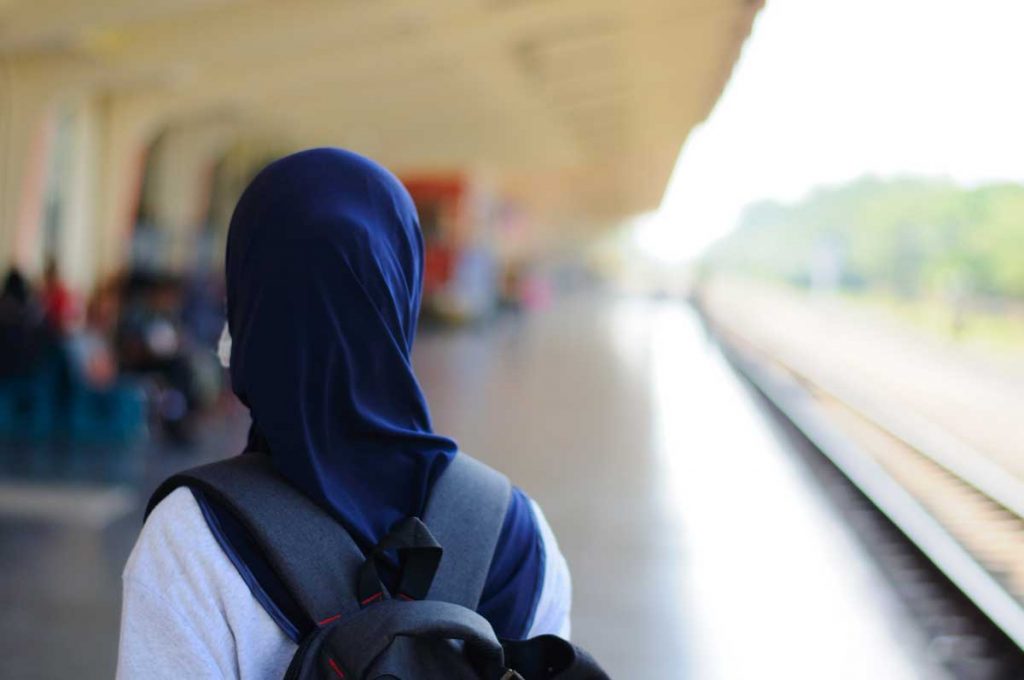“Puppy Love”
Oblivious Muslim Parents and Dangerous “Puppy Love” As I discussed briefly in my post “Muslims Don’t Fall in Love Before Marriage,” adults often make light of youth’s feelings of attraction, hence the common term puppy love.
Unfortunately, what is called “puppy love” is a lot more serious than the terminology suggests. Therefore, making fun of the very real feelings of young adult children does nothing help these youth work through these feelings and understand what they’re feeling and why they’re feeling it.
For Muslim parents, the scenario is often much worse because many have not reached the point where they are able to even openly acknowledge their children’s feelings of physical attraction, let alone make fun of these feelings.
Many Muslim parents are voluntarily oblivious to what their young adult children are going through, and these parents behave as if the mere discussion of physical attraction or sex is sinful, even in the context of marriage “one day.”
Naturally, this attitude makes the discussion of working through physical attraction toward the opposite sex in the context of school or other social environments unthinkable.
Thus, what results are increased spiritual crisis amongst Muslim youth (as we see in the struggle of Inaya) and increased illicit relationships between not only Muslims and non-Muslims, but between Muslim boys and girls themselves.
Ironically, many of these sinful relationships could be avoided if these Muslim youth felt comfortable talking to their parents or other trusted adults about their feelings before the attraction reached the point of physical intimacy.
I myself have witnessed the almost phenomenal effect of simply letting Muslim girls and boys know that what they’re feeling is completely natural and that the feeling itself is neither sinful nor something to be ashamed of.
At times, the youth’s ability to merely come to terms with the natural struggle of physical attraction, which in itself is not necessarily indicative of any “special connection” or fated partnership, resolves the dilemma before it even becomes a problem.

It’s Not Always That Easy
As an American Muslim girl who went to public school throughout my youth, I myself often worked through the natural struggle of physical attraction to non-Muslim (and Muslim) classmates.
Undoubtedly, after the mercy of Allah, my “saving grace” that protected me from falling into the sin of zina was my ability to be open with myself psychologically and spiritually about the completely natural feelings that I was experiencing, without feeling sinful or ashamed about what I was going through (an ability I am certainly indebted to my parents for).
However, it’s not always that easy. And this is where both Muslim parents (or trusted Muslim elders) and Muslim youth need to be very honest with themselves and each other when giving and seeking advice.
Every case of physical attraction is not merely “puppy love,” which youth can presumably mentally work through by merely accepting the natural feelings of physical attraction that they’re experiencing. And while it is true that the intensity of physical attraction outside the context of marriage is often fueled by Shaytaan (the Devil), this knowledge alone does not necessarily solve the dilemma.
Moreover, even heeding the oft-repeated religious advice to “simply” pray and read Qur’an does not remove the problem altogether though prayer and recitation of the Qur’an are certainly helpful in weathering the storm of emotions and desires.
In the most serious cases of youthful attraction, intense physical attraction is coupled with deep affection that has penetrated the hearts of both the girl and the boy, thus culminating into what is for all intents and purposes “falling in love.”
When the mutual attraction reaches the level of what feels like genuine love, staying away from sin is not so easy, and the youth often find themselves seriously pondering the question, “What are you willing to sacrifice for love?”
Fortunately, for some Muslim youth, their answer is resoundingly, “Nothing, if it compromises my soul.”
However, as we can see in the case of Inaya’s attraction to the student Raymond, in far too many cases, the concept of protecting one’s soul becomes blurred until some youth decide that it is some aspects of Islam itself that must be sacrificed in answering this question. This is when we begin to see manifestations of the very real spiritual dangers of youthful attraction.
Thus, this is also where parents and trusted adults need to put aside their misgivings about the topics of physical attraction and “young love” and become more vigilant, understanding, and available to youth who are genuinely trying to save their souls from sinful demise.
First published: May 2013
Pages: 1 2